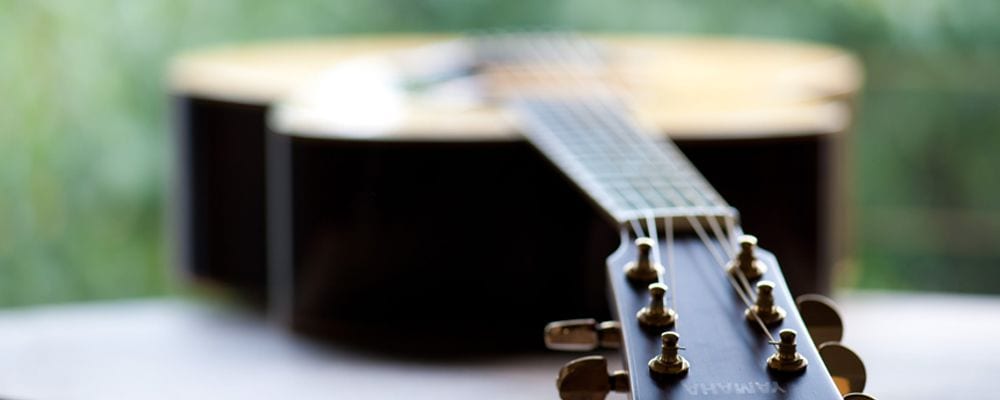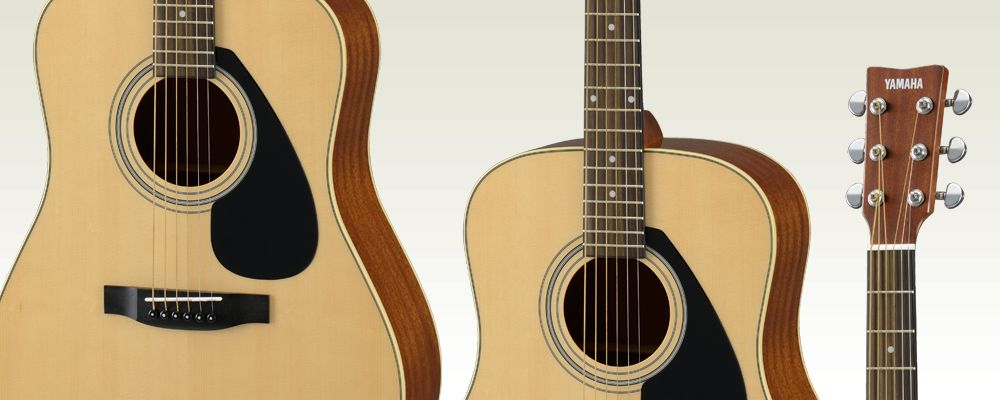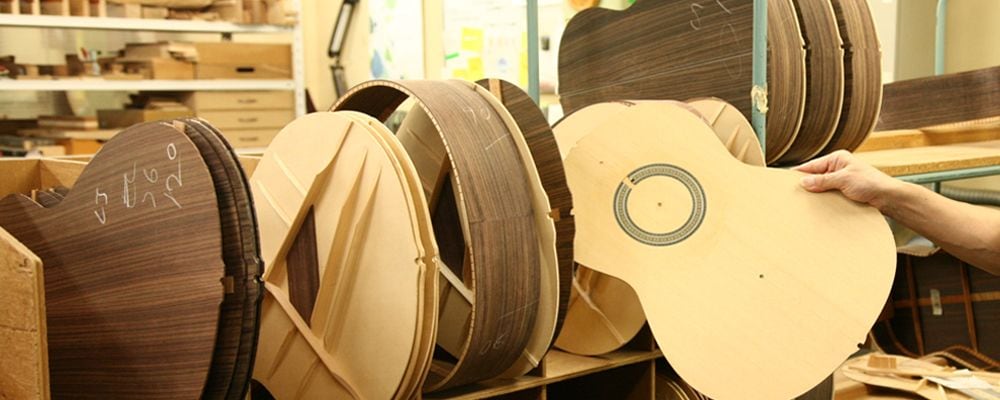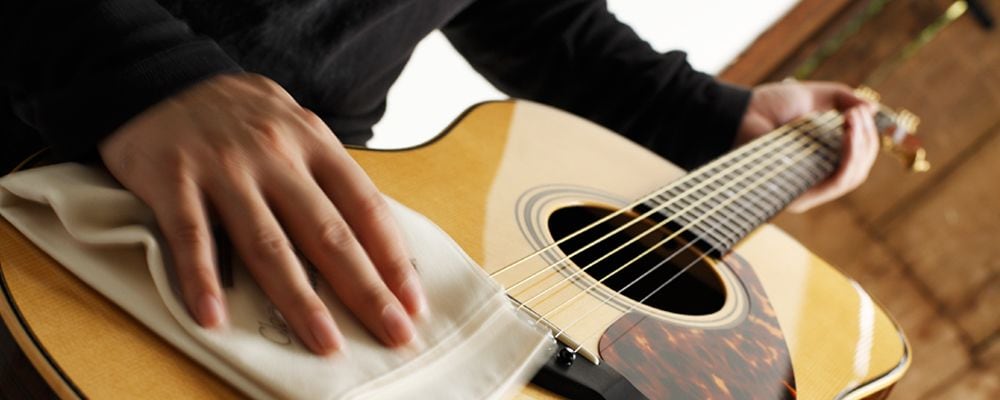Care and maintenance techniques to keep in mind
Care and Maintenance of an Acoustic Guitar
How to keep strings in good shape for a long time
How to keep strings in good shape for a long time
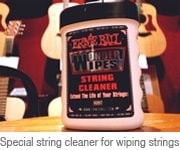
If you want to keep using your strings for a long time, it is important to thoroughly wipe each string. Although it is normal to get sweat and oil from your hands on the instrument when playing it, the strings could rust if not wiped off. You should get into the habit of wiping the strings with a cloth or the like immediately after you finish playing.
Special string cleaners are also available for the strings. They are packaged as easy-to-use, wet tissues. These cleaners are convenient for giving the guitar strings a quick wipe to remove any residual oil.
The fingerboard gets surprisingly dirty!
The fingerboard gets surprisingly dirty!
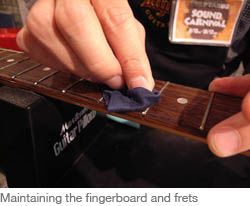
You may not really notice the fingerboard since it is located under the strings, but try removing the strings to take a look. You might be surprised to find oil from your fingers, dust on both sides of the frets, some rust, and more. Fingerboards can get surprisingly dirty!
However, the fingerboard is easy to maintain. When you replace the strings, just take a soft cloth with lemon oil or some other kind of special cleaning oil and carefully wipe the fingerboard. It is recommended that you use a special cleaning oil, as this will not only remove dirt but will also apply a proper amount of oil to the fingerboard. This is definitely something worth making a habit of!
What to do if a fret is damaged
What to do if a fret is damaged
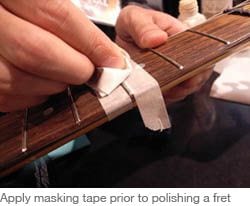
When maintaining your fingerboard, you should check for any damaged frets. Frets are very important as they determine the pitch of the guitar. At the same time, strings are constantly being pressed against them and techniques such as bending can cause wear and damage. A damaged fret can catch the string when playing, causing noise. It can also negatively affect the timbre, so it is best to quickly take care of any damage.
It is not so difficult to repair minor damage. Merely polish the head of the fret with a polishing compound until it is smooth again. When polishing a fret, be sure to first cover all other surrounding areas with masking tape or the like, so that the polishing compound does not damage the fingerboard or any wooden parts. Do not apply excessive pressure when polishing a fret-polish lightly and with care. For major damage that cannot be repaired with polishing compound or very deep damage, be sure to have a specialist take a look.
Leave a pencil in your guitar case
Leave a pencil in your guitar case
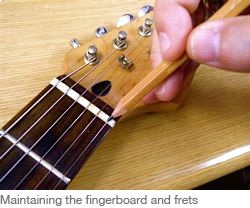
When tuning your instrument the nut and string may scrape, causing a very unpleasant sound. If this occurs, the nut has been worn down and the string can no longer move smoothly. This will make it difficult to tune and could even cause the string to snap, so it is better to take care of it as soon as you can.
This problem occurs when the groove on the nut is worn away after replacing the string several times, when dirt has settled in the groove, or when the nut has been damaged. In this case, it is generally best to send the guitar out for repair and have the groove reshaped. If you are handy you can probably repair it yourself, but you must be careful not to sand it too much.
If the nut makes this kind of noise during rehearsal or right before going on stage, you can use a pencil as an emergency measure. As shown in the photo below, just lightly rub the groove of the nut with a pencil. Although simple, this works quite well. Particles from the pencil lead enter the groove, reducing the friction between the string and nut and making the groove smoother. However, it will only last for a few days and is only an emergency measure.
Nuts should be replaced
Nuts should be replaced
Nuts are relatively soft parts, and should be replaced after their grooves have been reshaped several times. The sound of a guitar varies widely depending on the material of the parts that make contact with the strings, so changing the nut with one made from a different material can give the sound a noticeably different impression. If you usually play a guitar with a plastic nut, you could try switching it out for a nut made from ox bone. With their unique sound "flavor," ox bones have been used to make nuts for a long time, and are still often used in high end guitars. Smoother than plastic nuts and very dense, ox bone produces a clear sound. There are also brass nuts made from metal. These produce a bright sound with improved sustain.
Nuts sold in stores
Nuts sold in stores

Ox bone and plastic nuts are sold as replacement parts for very reasonable prices, so it can be a lot of fun to fit a new nut to your instrument. Note however that brass nuts are made from a hard material, and you will not be able to fit one by yourself.
This is well worth trying for anyone who is interested!

